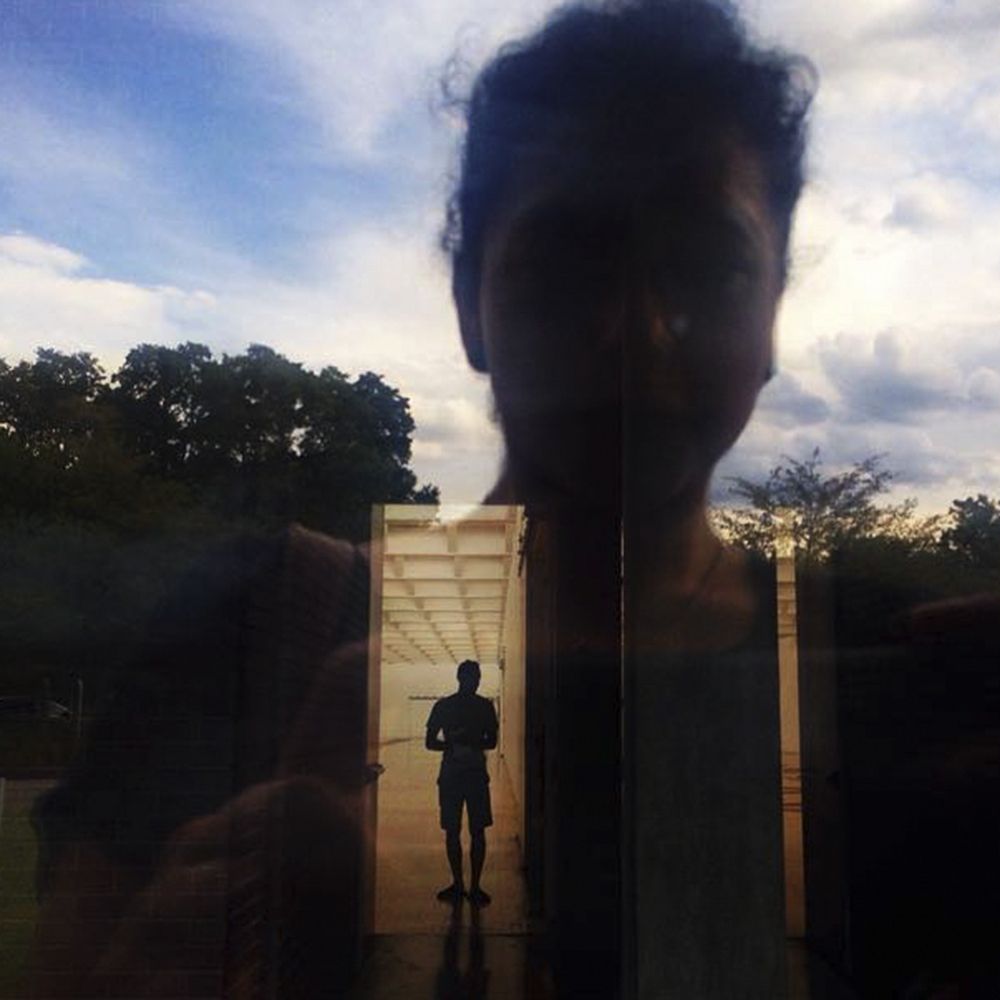Sharing photos may subtly change what — and how — we remember.
Though they may appear crystal clear in our minds, our memories are not a carbon copy of the events we witnessed.
Every time we recall a memory, we may accidentally alter it or diminish its accuracy. Even trivial memories are easily corrupted with mere suggestions. The psychologist Elizabeth Loftus once found that when people are told cars “collided” instead of “hit,” they recalled a car accident as being more severe than it was.
Most frustrating of all: We change these details and reconstruct reality without being aware we’re doing it. And the seams of our edited memories are silently sealed; we often can’t remember what we can’t remember.
As a journalist who covers psychology, I’m constantly reading about the mind’s failures of accuracy. And it makes me nervous.
From our partners:
Two years ago, I hiked to the bottom of the Grand Canyon and took 400 pictures along the way. I was worried that images of the canyon — the way the mid-morning light looked on the red-ocher and sand-colored walls — would slip from my memory and be replaced with an approximation. So I leaned on the camera; its memory seemed crystalline, undegradable.
But lately, I’ve been wondering what happens to our memories when we start to rely on smartphones more and more to document our lives. This question is not trivial: 77 percent of Americans now own smartphones, and many rely on them for memory support. If the phones are subtly shifting how human memory works, the effects will be widespread.
As with many topics in psychology, there are currently more questions than answers on this. But in many cases, scientists are finding that constant photo taking actually diminishes our ability to recall our experiences, diverts our attention, and takes us out of the moment. Constantly sharing photos may even be changing how we recall events in our own lives.
At the same time, new research suggests that cameras can also be used to enhance our memories of certain experiences.
This research is in its early stages, but it also provides clues as to how we can best use smartphones: to enhance both our memories of an experience and our enjoyment of them.
How photo taking may mess with our memories
The first step to forming a lasting memory is to pay attention. Without attention, our brains won’t store the sensations we experience in the world around us.
The brain stores long-term memories by linking neurons. The stronger the memory, the stronger the connections. These neurological connections link all the sensations that form a memory: what a scene looked like, what it felt like, what it smelled like.
But if we’re not paying attention — if we’re not even getting information into our short-term memories — nothing will be stored long term in our brains.

The Stanford Memorial Church is a building that demands attention. Above the entrance is a giant, pastel-colored fresco of Jesus welcoming worthy souls into heaven. In this depiction of heaven, there are palm trees. The inside of the church features mosaics, stained glass, and more paintings of angels and saints than you can count on your hands and feet. It’s magnificent. Yet as a forthcoming study in the Journal of Experimental Social Psychology finds, it becomes easier to forget with a camera phone in tow.
In a series of experiments, a few hundred participants took a self-guided tour through the church. On the tour, the participants were supposed to take note of details like “the cruciform shape of the church” and make sure they checked out the bronze angels that “greet you from the massive entry doors.”
Some of these participants had iPods equipped with cameras and were instructed to take photos (either to print out later or to post on Facebook). Other participants went in empty-handed.
A week after the tour, the participants were given a surprise quiz, with questions about details they should have learned on the tour. In one arm of the study, those without a camera got around 7 out of 10 questions right. Those who had a camera scored closer to 6. That’s like going from a C to a D, a small but significant difference.
“Just taking photos in general was enough to decrease scores on a memory test,” says Emma Templeton, a Dartmouth psychological researcher who was a co-author of the study.
Why? The simple answer is that the camera is a distraction. “It could just be that we’re using these devices, distracting ourselves from the experience, and because of that distraction, we don’t remember the thing we’re supposed to be paying attention to,” says Templeton.
And because of the ubiquity of smartphones, “we’ve just inserted into our daily lives potentially a giant source of distraction.”
Templeton and her colleagues suspect it’s not just cameras that are a source of distraction. Using any media during an event — texting, tweeting, etc. — could lead to lapses in memory. Her research team also ran a concurrent online study, which allowed for tighter controls than the church study, that asked 380 participants to watch a TED talk. Overall, memory for the TED talk decreased in any condition where the participants were instructed to take notes onscreen.
Overall, Templeton stresses that psychologists are just beginning to answer the question of how smartphones impact our cognitive abilities. “We’ve had [digital] media and cameras for a while, but in the context [of] the stuff we normally study, this is really quite new, and the use of media is evolving very fast,” she says.
In other words, assessing smartphones’ impact on our cognitive abilities is made even harder by the fact that we’re constantly changing how we use the devices.
How much of my life do I want remembered purely by my brain?
Another reason taking photos may diminish our memories is an idea called cognitive offloading.
Simply put, it’s the idea that we’re literally outsourcing our mental capabilities to computers. In 2011, the journal Science famously published a study that found when people are told a computer will save a piece of information, they’re less likely to remember it for themselves. That experiment only had 60 participants and was conducted on a sample of college students, so its conclusions may have limited value. But you don’t have to look too far to find clear examples of cognitive outsourcing. How many people’s phone numbers do you have memorized?
Lately, more evidence for this idea has trickled in. In 2015, psychology researchers at the University of Waterloo published a paper titled “The Brain in Your Pocket.” They found that people who avoid difficult, analytical styles of thinking are more likely to report relying on their smartphones to look up information. The results suggested that using computers as a cognitive crutch is a common tactic.
“A lot of people, when they see our paper, think our argument is that smartphones are making you stupid,” says Nathaniel Barr, the lead author on the paper who’s now a psychology professor at Sheridan College. “Our favored interpretation is that it’s actually a great way for a person who may be lower in cognitive ability to boost their brain’s ability.” If you’re someone who is bad at remembering directions, you can still get on fine in the world. Smartphones, in this light, are kind of like a new cognitive shortcut.
And cognitive offloading may not be a bad thing if we’re offloading something mundane. If your surgeon is looking up the next step for an appendectomy on Google mid-operation, maybe that’s a problem — but “does anybody give a shit that they don’t have to remember people’s phone numbers?” Barr says.
When it comes to taking photos, the question of offloading becomes more complicated: How much of my life do I want remembered purely by my brain?

“Everything is a trade-off,” Barr says. “If you snap a shot and share it, you’re going to be able to relive that experience with others. If you didn’t, it’s going to be isolated to yourself. There’s both good and bad about that. … As these technologies become more embedded in our lives, I think we’re tasked with more decisions about trade-offs.”
And this is where some of the most interesting research on cameras and memories lies: what we gain, and what we miss out on, when we take photos nonstop.
The biggest trade-off: cameras narrow our attention
Here’s the nuanced take: Smartphone photography isn’t making us dumber. It’s shifting the way our minds work, refocusing our attention.
Alixandra Barasch is a cognitive scientist at NYU. In her work, she finds that, yes, incessant smartphone camera use can lead to lapses in memory. But, more importantly, she finds a wrinkle: Cameras can also focus our attention to enhance memory.
She’s run similar studies to the one at Stanford, where participants either take photos or don’t take photos while on a museum tour. When instructed to take photos of an exhibit, her participants were more likely to remember visual aspects of their experience (the art and artifacts they saw) than if they didn’t take photos. But there’s a trade-off: The participants snapping photos were less likely to remember information they heard.
“Photos are increasing visual memories,” Barasch says, “but it doesn’t come without a cost.” And that cost is our attention. If we’re so focused on photos and visuals, we’re more likely to ignore other stimuli around us. And what gets ignored does not get remembered.
Barasch’s research finds evidence that smartphones are changing what we notice — they’re redirecting or focusing our attention. In a small study, Barasch and colleagues outfitted participants with eye-tracking devices as they embarked on a tour of a museum exhibit. The analysis revealed that participants who were assigned to take photos spent more time looking at artifacts, and looked at more of them. They didn’t look as much at the floor and ceiling.
When we’re hunting for the perfect Instagram shot, we’re not listening, we’re not smelling, we’re not always paying attention to the beautiful, complex minutiae that make up the moment.

Other researchers have found a similar curious effect. In 2011, Fairfield University psychologist Linda Henkel found in a experiment that when participants were simply told to take photos in a museum exhibit, their memories for the object and the details about them were diminished. But when the participants were told specifically to use the zoom feature on their camera, and get in close, their memories for the objects in the exhibit improved.
The lesson here is that we’re probably limiting our experience when we’re so focused on our cameras.
Powerful experiences in the real world are immersive and often engage all the senses. On your last vacation, can you remember what the wind felt like on your back? Do you remember what was going on internally: Were you thrilled, excited, or scared? When you look back on the Instagram photos from the trip, will you remember what a dinner tasted like, or just that it was pretty?
Photos and recordings are always going to be a thin slice of what you experienced. “They’re not even necessarily the true, full version of what happened,” Henkel says. When we look back on those photos, they do serve as memory cues, but they’re not necessarily reminding us of the whole story.
What sharing so many photos does to our memory
In the past few years, not only have we begun taking more and more pictures with digital cameras but we’re also sharing them, nearly instantly, on social media. This may alter our memories too — in a subtle but profound way.
Barasch and her colleagues have found evidence that taking pictures to share on social media changes our perspective within our memories. That is: When we’re taking photos to share on social media, we’re more likely to remember the moment from a third-person perspective.

“If I asked you to form a picture in your mind of your Christmas experience” that you shared a photo of on social media, she explains, “then you’ll actually start visualizing your Christmas more from an outsider’s perspective.” (She and colleagues performed this experiment with 332 students over a Christmas break.) Photos we simply take for our own archives don’t produce this effect as often.
The consequences of this are subtle. For one, Barasch finds that focusing on sharing photos can make the process of taking photos less enjoyable. That’s possibly because sharing makes us more self-conscious. (Therefore, she recommends pausing a bit after a photo is taken before you share it.) What’s unclear is how this perspective shift will change the way we think about our lives years down the line.
“What we’re looking at now is more intensity of emotions,” she says. “When people are in more of a third-person perspective, they’ll have less intense emotions when they relive the experience, whereas if I stay in the first-person perspective, I feel the genuine emotions that I felt during the exchange.”
How to remember better
At the end of the day, it’s just hard to know what the optimal balance of internal memory and tech-aided memory should be.
But if we want to hold on to certain memories, it’s going to take some mental effort.
It means paying closer attention to our surroundings. It means using our cameras mindfully to focus on the details we truly want to remember. It means putting down the camera for a few moments to notice what the air feels like, what the streets smell like, and writing down our feelings about being there.
Smartphones can help with this process: They can store information and serve as memory cues to help us retrieve it later on. But we can’t offload everything to them.
One consistent finding from research on learning is that intentional memory making takes some effort. Rereading material doesn’t help a student memorize exam answers. No, it’s the hard work of digging down into our memories and reconstructing a piece of information from scratch that makes it easier to retrieve later.

The same thing may happen with experience. “If we don’t practice strategic, effortful retrieval, it may make it more challenging for us when we really have to rely on our own memory,” Henkel says.
Recently, I returned to the Grand Canyon for a second time. It was an unexpected trip. I didn’t bring my standalone camera, and I didn’t take that many photos with my iPhone. I already had photos. And it was liberating. Today, I remember how the canyon squirrels scurried around us, hoping to steal our lunch. I remember how the mild February breeze felt encouraging 7 miles into a hard hike. I remember a dumb joke my friend made about how we should call mule droppings “trail apples” (they’re pretty round). These aren’t photographs; they’re in my head. And I’m pretty sure they’re true.
This feature is written by Brian Resnick & originally appeared in Vox.
















